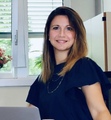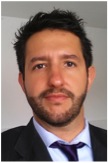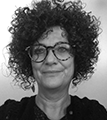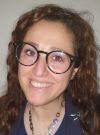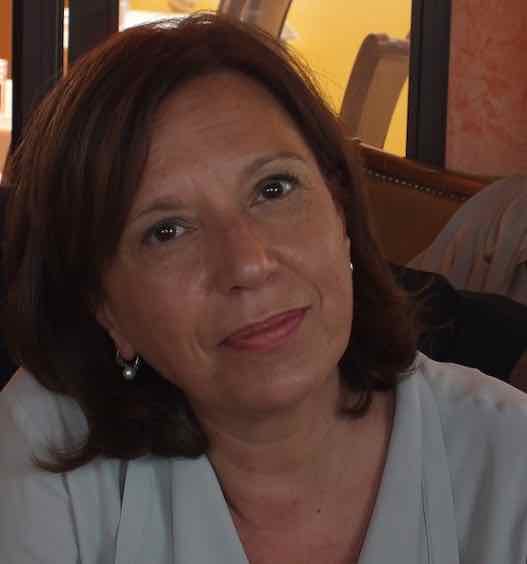Studying at the University of Verona
Academic calendar
The academic calendar shows the deadlines and scheduled events that are relevant to students, teaching and technical-administrative staff of the University. Public holidays and University closures are also indicated. The academic year normally begins on 1 October each year and ends on 30 September of the following year.
Course calendar
The Academic Calendar sets out the degree programme lecture and exam timetables, as well as the relevant university closure dates..
| Period | From | To |
|---|---|---|
| MED ING 1° semestre | Oct 2, 2024 | Dec 20, 2024 |
| MED ING annuale | Oct 2, 2024 | Sep 30, 2025 |
| MED ING 2° semestre | Jan 2, 2025 | Sep 30, 2025 |
| Period | From | To |
|---|---|---|
| Tutti i Santi | Nov 1, 2024 | Nov 1, 2024 |
Exam calendar
To view all the exam sessions available, please use the Exam dashboard on ESSE3. If you forgot your login details or have problems logging in, please contact the relevant IT HelpDesk, or check the login details recovery web page.
Should you have any doubts or questions, please check the Enrollment FAQs
Academic staff
Study Plan
The Study Plan includes all modules, teaching and learning activities that each student will need to undertake during their time at the University.
Please select your Study Plan based on your enrollment year.
1° Year
| Modules | Credits | TAF | SSD |
|---|
2° Year It will be activated in the A.Y. 2025/2026
| Modules | Credits | TAF | SSD |
|---|
3° Year It will be activated in the A.Y. 2026/2027
| Modules | Credits | TAF | SSD |
|---|
4° Year It will be activated in the A.Y. 2027/2028
| Modules | Credits | TAF | SSD |
|---|
5° Year It will be activated in the A.Y. 2028/2029
| Modules | Credits | TAF | SSD |
|---|
6° Year It will be activated in the A.Y. 2029/2030
| Modules | Credits | TAF | SSD |
|---|
| Modules | Credits | TAF | SSD |
|---|
| Modules | Credits | TAF | SSD |
|---|
| Modules | Credits | TAF | SSD |
|---|
| Modules | Credits | TAF | SSD |
|---|
| Modules | Credits | TAF | SSD |
|---|
| Modules | Credits | TAF | SSD |
|---|
Legend | Type of training activity (TTA)
TAF (Type of Educational Activity) All courses and activities are classified into different types of educational activities, indicated by a letter.
Clincal ORL, Odontostomatology and Maxillofacial Surgery, Ophthalmology (It will be activated in the A.Y. 2026/2027)
Teaching code
4S02610
Credits
6
Scientific Disciplinary Sector (SSD)
-
Learning objectives
The purpose of the course is to remark the relevance of an early diagnosis in squamous cell carcinoma of head and neck; to identify the principle of cranio-maxillo-facial deformity correction and to identify the most relevant clinical signs in cranio-facial traumatology and in oto-rhino-laryngoiatric pathology. To give basic element in ophtalmic physiology and pathology. Glaucoma, retina’s disease, ophthalmic tumours diagnosis and therapy will be stressed out.
Ophthalmology Module
The module is divided into elementary didactic units aimed at providing both a general level of knowledge of ophthalmology and a more specific knowledge of topics considered essential for the training of a non-specialist physician. The student should be familiar with elements of physiology, pathology, and clinical aspects of the orbit (exophthalmos, eyelids, and lacrimal pathways), conjunctiva, cornea, sclera, uvea, and lens, as well as the physiopathology of aqueous humor dynamics with particular attention to the diagnosis and treatment of glaucomas. They should be aware of the main symptoms and signs as well as the principles of therapy for vascular and metabolic retinal diseases, retinal detachment, macular degeneration, ocular tumors, optic nerve and optic pathways pathology, refractive errors, and strabismus.
Otorhinolaryngology Module
Provide the student with the knowledge and skills of diagnostic-therapeutic acts pertinent to general otorhinolaryngology. At the end of the module, the student must possess a cultural background capable of establishing direct and immediate communication with the patient and their family regarding otorhinolaryngological pathologies. In particular, the student must possess knowledge, within their competence, related to the physiopathology and clinical aspects of pediatric and adult otorhinolaryngological diseases, understand the fundamentals of functional and instrumental semiotics, and the methodology and therapy in otorhinolaryngology, especially for urgent pathologies. Finally, they must have knowledge of the main surgical techniques used daily in the otorhinolaryngological field.
Dentistry and Maxillofacial Surgery Module
This module represents the first step towards the conscious knowledge of a specialized surgical discipline, which however, in daily practice, has multiple interactions with other medical-surgical fields such as otorhinolaryngology, plastic-reconstructive surgery, neurosurgery, ophthalmology, and orthopedic surgery."
Examination Methods
Multiple choice test, 60 questions (20 per topic). The time available for carrying out the test is 90 minutes, if the candidate has to take only a part of the exam (e.g. he has already taken part of the exam elsewhere) he must notify the supervisor, the time will be reduced proportionately.
Evaluation criteria
The test ascertains the level of theoretical content knowledge achieved by the student in the three different modules. To obtain the sufficiency it is necessary to achieve the sufficiency in all the three topics of the exam (12/20) The final grade is given by the arithmetic mean of the three tests in thirtieths.
Free choice courses
Modules not yet included
Career prospects
Module/Programme news
News for students
There you will find information, resources and services useful during your time at the University (Student’s exam record, your study plan on ESSE3, Distance Learning courses, university email account, office forms, administrative procedures, etc.). You can log into MyUnivr with your GIA login details: only in this way will you be able to receive notification of all the notices from your teachers and your secretariat via email and soon also via the Univr app.
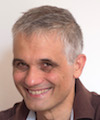
 giuseppe.bertini@univr.it
giuseppe.bertini@univr.it
 045-802-7682
045-802-7682
